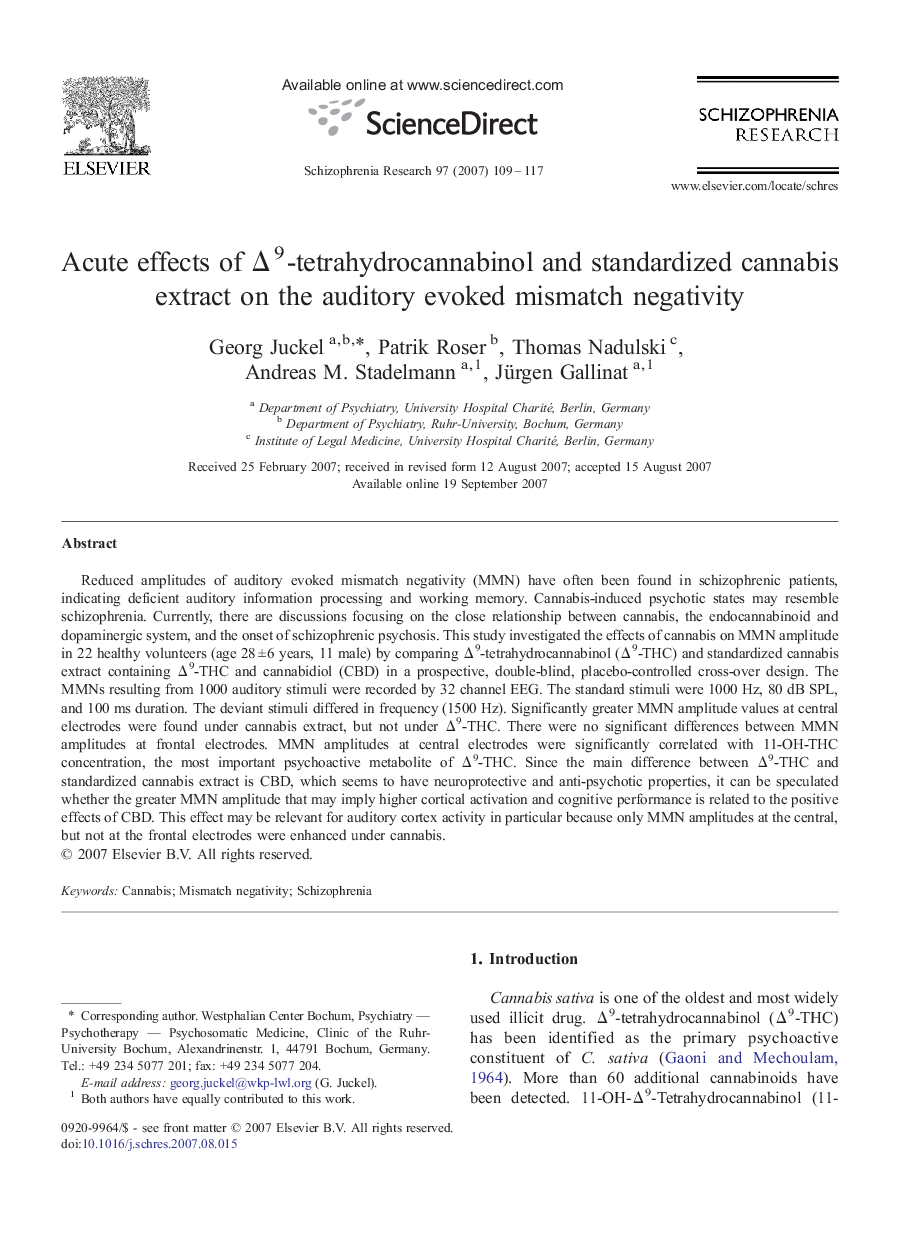| Article ID | Journal | Published Year | Pages | File Type |
|---|---|---|---|---|
| 341990 | Schizophrenia Research | 2007 | 9 Pages |
Reduced amplitudes of auditory evoked mismatch negativity (MMN) have often been found in schizophrenic patients, indicating deficient auditory information processing and working memory. Cannabis-induced psychotic states may resemble schizophrenia. Currently, there are discussions focusing on the close relationship between cannabis, the endocannabinoid and dopaminergic system, and the onset of schizophrenic psychosis. This study investigated the effects of cannabis on MMN amplitude in 22 healthy volunteers (age 28 ± 6 years, 11 male) by comparing Δ9-tetrahydrocannabinol (Δ9-THC) and standardized cannabis extract containing Δ9-THC and cannabidiol (CBD) in a prospective, double-blind, placebo-controlled cross-over design. The MMNs resulting from 1000 auditory stimuli were recorded by 32 channel EEG. The standard stimuli were 1000 Hz, 80 dB SPL, and 100 ms duration. The deviant stimuli differed in frequency (1500 Hz). Significantly greater MMN amplitude values at central electrodes were found under cannabis extract, but not under Δ9-THC. There were no significant differences between MMN amplitudes at frontal electrodes. MMN amplitudes at central electrodes were significantly correlated with 11-OH-THC concentration, the most important psychoactive metabolite of Δ9-THC. Since the main difference between Δ9-THC and standardized cannabis extract is CBD, which seems to have neuroprotective and anti-psychotic properties, it can be speculated whether the greater MMN amplitude that may imply higher cortical activation and cognitive performance is related to the positive effects of CBD. This effect may be relevant for auditory cortex activity in particular because only MMN amplitudes at the central, but not at the frontal electrodes were enhanced under cannabis.
